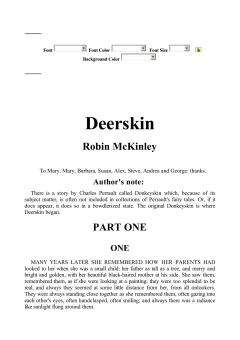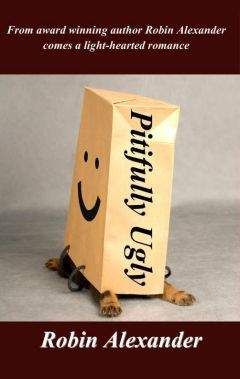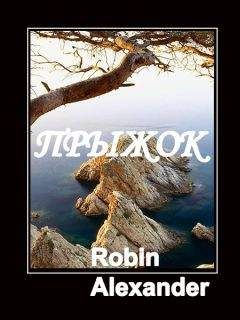Метод Франка - Milne. Winnie-the-Pooh
And now all the others are saying, “What about Us?” So perhaps the best thing to do is to stop writing Introductions and get on with the book.
A. A. M.
PART 1
Часть 1
Chapter 1,
IN WHICH WE ARE INTRODUCED TO WINNIE-THE-POOH AND SOME BEES, AND THE STORIES BEGIN
Глава 1, в которой мы знакомимся с Винни-Пухом и некоторыми пчелами, и начинаются истории
HERE is Edward Bear, coming downstairs now (ВОТ Эдвард Медведь[6], идущий вниз по лестнице сейчас = который сейчас спускается по лестнице; to come / go downstairs — спускаться по лестнице), bump, bump, bump, on the back of his head, behind Christopher Robin (бум, бум, бум — своим затылком /по ступенькам/[7] за Кристофером Робином; back of the head — затылок). It is, as far as he knows, the only way of coming downstairs (это, насколько он знает = ему известно, — единственный способ спуска/ться/ по лестнице; as far as — насколько, поскольку), but sometimes he feels that there really is another way (но иногда он чувствует, что /там/ в действительности есть другой способ; there is — есть, имеется, существует), if only he could stop bumping for a moment and think of it (если бы только он мог остановить бумканье / перестать бумкать на секунду и придумать его / додуматься до него / подумать о нем[8]; to think of — придумать, подумать о, додуматься до).
sometimes ['sAmtaImz], know [nqu], could [kud]
HERE is Edward Bear, coming downstairs now, bump, bump, bump, on the back of his head, behind Christopher Robin. It is, as far as he knows, the only way of coming downstairs, but sometimes he feels that there really is another way, if only he could stop bumping for a moment and think of it.
And then he feels that perhaps there isn't (и тогда он чувствует, что, возможно, нет /такого способа/). Anyhow, here he is at the bottom, and ready to be introduced to you (так или иначе, вот он внизу, и готов познакомиться с вами; bottom — низ, нижняя часть). Winnie-the-Pooh (Винни-Пух).
perhaps [pq'hxps], there [DFq], ready ['redI]
And then he feels that perhaps there isn't. Anyhow, here he is at the bottom, and ready to be introduced to you. Winnie-the-Pooh.
When I first heard his name (когда я впервые услышал его имя; to hear — слышать), I said, just as you are going to say (я сказал, как раз как вы собираетесь сказать = как собираетесь сказать вы; to be going to V — собираться, намереваться), “But I thought he was a boy (но я думал, что он /был/ мальчик; to think — думать, полагать)?”
“So did I,” said Christopher Robin (я тоже: «так делал я», сказал Кристофер Робин).
“Then you can't call him Winnie (тогда ты не можешь = нельзя звать его Винни[9])?”
“I don't (я и не называю: «я не делаю»).”
“But you said— (но ты сказал; to say — сказать)”
“He's Winnie-ther-Pooh (он Винни-Пух). Don't you know what 'ther' means (разве ты не знаешь, что значит ЗЭ[10])?”
“Ah, yes, now I do (а, да, теперь /я/ знаю),” I said quickly; and I hope you do too (я сказал быстро, и /я/ надеюсь, вы /знаете теперь/ тоже: «вы делаете тоже»; do — делать — заменяет глагол know), because it is all the explanation you are going to get (потому что это все объяснение, /которое/ вы получите).
heard [hWd], said [sed], call [kLl]
When I first heard his name, I said, just as you are going to say, “But I thought he was a boy?”
“So did I,” said Christopher Robin.
“Then you can't call him Winnie?”
“I don't.”
“But you said—”
“He's Winnie-ther-Pooh. Don't you know what 'ther' means?”
“Ah, yes, now I do,” I said quickly; and I hope you do too, because it is all the explanation you are going to get.
Sometimes Winnie-the-Pooh likes a game of some sort when he comes downstairs (иногда Винни-Пух любит сыграть во что-нибудь: «игру какого-нибудь сорта», когда спускается по лестнице = спустился по лестнице), and sometimes he likes to sit quietly in front of the fire and listen to a story (а иногда он любит посидеть тихо перед камином и послушать историю). This evening— (этим вечером = сегодня вечером)
“What about a story?” said Christopher Robin (что = как насчет истории? — сказал Кристофер Робин).
“What about a story?” I said (/а/ что насчет истории? — сказал = спросил я).
“Could you very sweetly tell Winnie-the-Pooh one (/не/ мог бы ты очень любезно = не мог бы ты быть настолько любезен, /чтобы/ рассказать Винни-Пуху одну = историю)?”
“I suppose I could,” I said (/я/ полагаю, /что/ /я/ мог бы, — сказал я). “What sort of stories does he like (какого типа = какие истории он любит)?”
“About himself (о себе). Because he's that sort of Bear (потому что он такого сорта = такой /уж/ Медведь).”
“Oh, I see (о, я вижу / понимаю).”
“So could you very sweetly (поэтому /не/ мог бы ты очень любезно = поэтому не будешь ли ты любезен)?”
“I'll try,” I said (/я/ попробую, — сказал я).
So I tried (поэтому = и я попробовал).
listen [lIsn], evening ['JvnIN], suppose [sq'pquz]
Sometimes Winnie-the-Pooh likes a game of some sort when he comes downstairs, and sometimes he likes to sit quietly in front of the fire and listen to a story. This evening—
“What about a story?” said Christopher Robin.
“What about a story?” I said.
“Could you very sweetly tell Winnie-the-Pooh one?”
“I suppose I could,” I said. “What sort of stories does he like?”
“About himself. Because he's that sort of Bear.”
“Oh, I see.”
“So could you very sweetly?”
“I'll try,” I said.
So I tried.
Once upon a time, a very long time ago now, about last Friday, Winnie-the-Pooh lived in a forest all by himself under the name of Sanders (однажды, очень давно от сейчас = давным-давно, где-то в прошлую пятницу, жил-был Винни-Пух в лесу совсем один / один-одинешенек под именем Сандерс).
(“What does 'under the name' mean (что значит «под именем»)?” asked Christopher Robin (спросил Кристофер Робин). “It means he had the name over the door in gold letters, and lived under it (это значит, /что/ он имел = у него было /это/ имя над дверью /в/ золотыми буквами, и /он/ жил под ним).”
“Winnie-the-Pooh wasn't quite sure,” said Christopher Robin (Винни-Пух был не вполне уверен, — сказал Кристофер Робин).
“Now I am,” said a growly voice (теперь /я/ /уверен/, — сказал ворчливый голос = голосок).
“Then I will go on,” said I (тогда я продолжу, — сказал я).)
quite [kwaIt], sure [Suq], growly ['graulI]
Once upon a time, a very long time ago now, about last Friday, Winnie-the-Pooh lived in a forest all by himself under the name of Sanders.
(“What does 'under the name' mean?” asked Christopher Robin. “It means he had the name over the door in gold letters, and lived under it.”
“Winnie-the-Pooh wasn't quite sure,” said Christopher Robin.
“Now I am,” said a growly voice.
“Then I will go on,” said I.)
One day when he was out walking (однажды, когда он гулял /снаружи/: «был снаружи гуляющим»), he came to an open place in the middle of the forest (он пришел на открытое место в середине леса), and in the middle of this place was a large oak-tree (и в середине этого места был большой дуб), and, from the top of the tree, there came a loud buzzing-noise (а с вершины дерева = дуба /там/ приходил = доносился громкий гудящий шум; to come — приходить, приезжать).
Winnie-the-Pooh sat down at the foot of the tree (Винни-Пух сел у подножия дерева), put his head between his paws and began to think (положил /свою/ голову между своих лап = обхватил голову лапами и начал думать; to put — класть).
large [lRG], loud [laud], paw [pL]
One day when he was out walking, he came to an open place in the middle of the forest, and in the middle of this place was a large oak-tree, and, from the top of the tree, there came a loud buzzing-noise.
Winnie-the-Pooh sat down at the foot of the tree, put his head between his paws and began to think.
First of all he said to himself: “That buzzing-noise means something (прежде всего он сказал себе: этот жужжащий шум что-то означает). You don't get a buzzing-noise like that (ты не создаешь = издаешь такой жужжащий шум; like that — такой), just buzzing and buzzing, without its meaning something (просто жужжание и жужжание = просто жужжишь и жужжишь без того, чтобы это что-то значило = бессмысленно). If there's a buzzing-noise, somebody's making a buzzing-noise (если есть жужжащий шум, кто-то создает жужжащий шум = если есть жужжание, /то/ кто-то жужжит), and the only reason for making a buzzing-noise that I know of is because you're a bee (а единственная причина, чтобы создавать жужжащий шум = чтобы жужжать, о который я знаю, /это/ потому что ты пчела).”
something ['sAmTIN], reason ['rJzn], bee [bJ]
First of all he said to himself: “That buzzing-noise means something. You don't get a buzzing-noise like that, just buzzing and buzzing, without its meaning something. If there's a buzzing-noise, somebody's making a buzzing-noise, and the only reason for making a buzzing-noise that I know of is because you're a bee.”
Then he thought another long time, and said (затем он думал еще долгое время и сказал): “And the only reason for being a bee that I know of is making honey (а единственная причина, /чтобы/ быть пчелой: «бытие пчелой», которую я знаю, — это делать мед: «делание меда»).”
And then he got up, and said (и потом он встал и сказал): “And the only reason for making honey is so as I can eat it (а единственная причина, /чтобы/ делать мед — это чтобы я мог его есть).” So he began to climb the tree (поэтому он начал лезть на дерево = полез на дерево; to begin — начинать).



